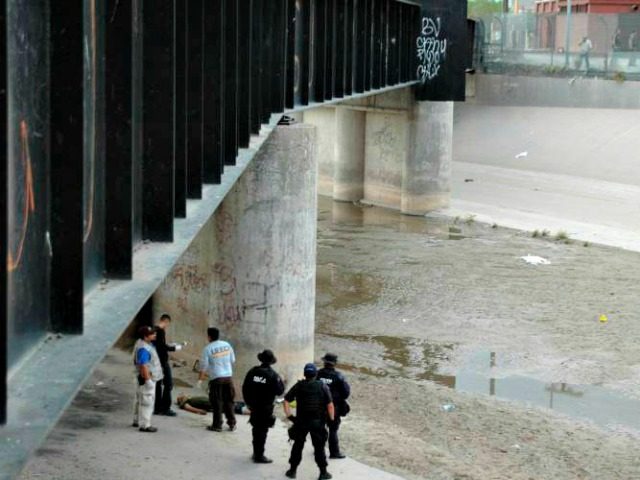WASHINGTON, D.C.—How a U.S. Border Patrol argent’s use of lethal force at the U.S-Mexican border implicates constitutional rights and foreign affairs dominated arguments at the U.S. Supreme Court on Tuesday in Hernandez v. Mesa. The lawyer arguing that the agent should be held liable had a rough day in front of the justices.
Both sides agree that while standing on American soil at the border on June 7, 2010, Border Patrol Agent Jesus Mesa fatally shot Sergio Hernandez, a 15-year-old Mexican national standing on the Mexican side. But then the factual accounts diverge.
According to Hernandez’s family, the teenager was playing with his friends near the border opposite El Paso, Texas, where the border runs through the middle of a concrete culvert. There is a fence on the U.S. side of the culvert.
According to Mesa and the federal government, Mesa was detaining one of Hernandez’s companions on the U.S. side of the border, when Hernandez and the other teenagers started throwing rocks at Hernandez. Mesa claims that the rocks posed a danger to his safety. He repeatedly ordered then to stop and back away, but they persisted. Finally Mesa fired in what he claims is self-defense, fatally striking Hernandez.
Hernandez’s family sued, and Mesa filed a motion to dismiss. Under the Federal Rules of Civil Procedure, when considering a motion to dismiss, a federal court must consider the plaintiff’s allegations as true when deciding whether to throw out the lawsuit versus letting it continue. The parties later present evidence to prove their version of the facts if the lawsuit goes forward, but when deciding whether to end the case before it gets started, judges must consider only plaintiff’s version.
The justices must decide three issues in this case. First, whether someone on foreign soil can raise a Fourth Amendment claim here, where the agent’s action of pulling the trigger took place on U.S. soil but the alleged constitutional injury occurred on Mexican soil when the bullet struck Hernandez. Second, whether Mesa is entitled to qualified immunity here when certain keys facts were unknowable at the time of the incident. And third, whether the family can sue Mesa personally under a contested Supreme Court precedent called Bivens, going after his personal assets such as his home and retirement.
Chief Justice John Roberts led the tough questioning of Hernadez’s lawyer, who seemed out of his depth in the High Court.
“It seems to me that the principles you’re arguing for can’t be narrowly confined,” said Roberts, expressing concern that the plaintiff’s argument could be used against the U.S. military acting overseas. “How do you analyze the case of a drone strike in Iraq where the plane is piloted from Nevada? Why wouldn’t the same analysis apply in that case?”
Justice Stephen Breyer—a moderate-liberal justice appointed by Bill Clinton—agreed. “What words do we write so that this opinion doesn’t affect the drone strike?,” he asked.
Justice Samuel Alito likewise pressed the lawyer, peppering him with questions such as if Hernandez were 19 instead of 15, or armed but with his hands up instead of unarmed, or 200 yards inside Mexico instead of at the literal border, or if the U.S. officer stepped across the border into Mexico instead of being on U.S. soil, asking each time where the line would be drawn for this newfound constitutional claim.
“You’ve indicated that there’s a problem all along the border,” added Justice Anthony Kennedy, expressing concern about whether the courts should be deciding these things. “Why doesn’t that counsel us that this is one of the most sensitive areas of foreign affairs where the political branches should discuss with Mexico what the solution ought to be?”
The more liberal justices asked tough questions of all the lawyers and did not clearly indicate which way they would rule. The more conservative justices seemed to favor the federal government’s position.
A decision is expected by late June. Hernandez v. Mesa is No. 15-118 on the Supreme Court docket.
Ken Klukowski is senior legal editor for Breitbart News. Follow him on Twitter @kenklukowski.

COMMENTS
Please let us know if you're having issues with commenting.